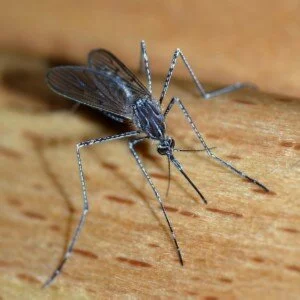Mosquitoes are rapidly developing resistance to insecticides used in bednets that millions of people rely on to protect them from malaria, experts say. Scientists are racing to develop new insecticides, warning that tens of thousands of people in Africa could die every year if mosquitoes develop full resistance before replacements are found.
The issue will be a concern when the World Health Assembly meets in Geneva next month to look at proposals to eliminate malaria in 35 countries by 2030.
An estimated 4.3 million deaths have been prevented since 2000, many of them because of the mass distribution of treated bednets in Africa, according to Roll Back Malaria, a partnership including the World Health Organization, UNICEF and World Bank. “Only one class of chemicals is registered and works in bednets. It’s a unique chemistry and it’s very hard to replace,” said Nick Hamon, CEO of IVCC, a UK-based charity working with agro-chemical companies to develop new insecticides against mosquitoes.
The chemicals currently used are extremely safe for humans, are absorbed through the insects’ feet — they do not have to be eaten — and kill them within minutes. They also last for several years on the nets and are affordable. A lot of hopes are pinned on three new chemicals which IVCC and its partners are putting into development this year. But even if these succeed, it will take them eight to nine years to reach the market.
Scientists are also looking at insecticides already used in agriculture that may be repurposed for health uses, and which could become available more quickly. In the meantime, tens of thousands of people may die each year if mosquitoes develop full resistance to the current insecticides, Hamon said. He said it was a dilemma knowing how much to warn people about the dangers of resistance.
“You’ve got to shout loudly enough that people go: ‘Right we’ve got to fix it’, but you don’t want to risk the lives of people, (if health agencies) say: ‘What’s the point? We’ll just shut down all our (bednet) programmes’,” he said in an interview.




No Comments